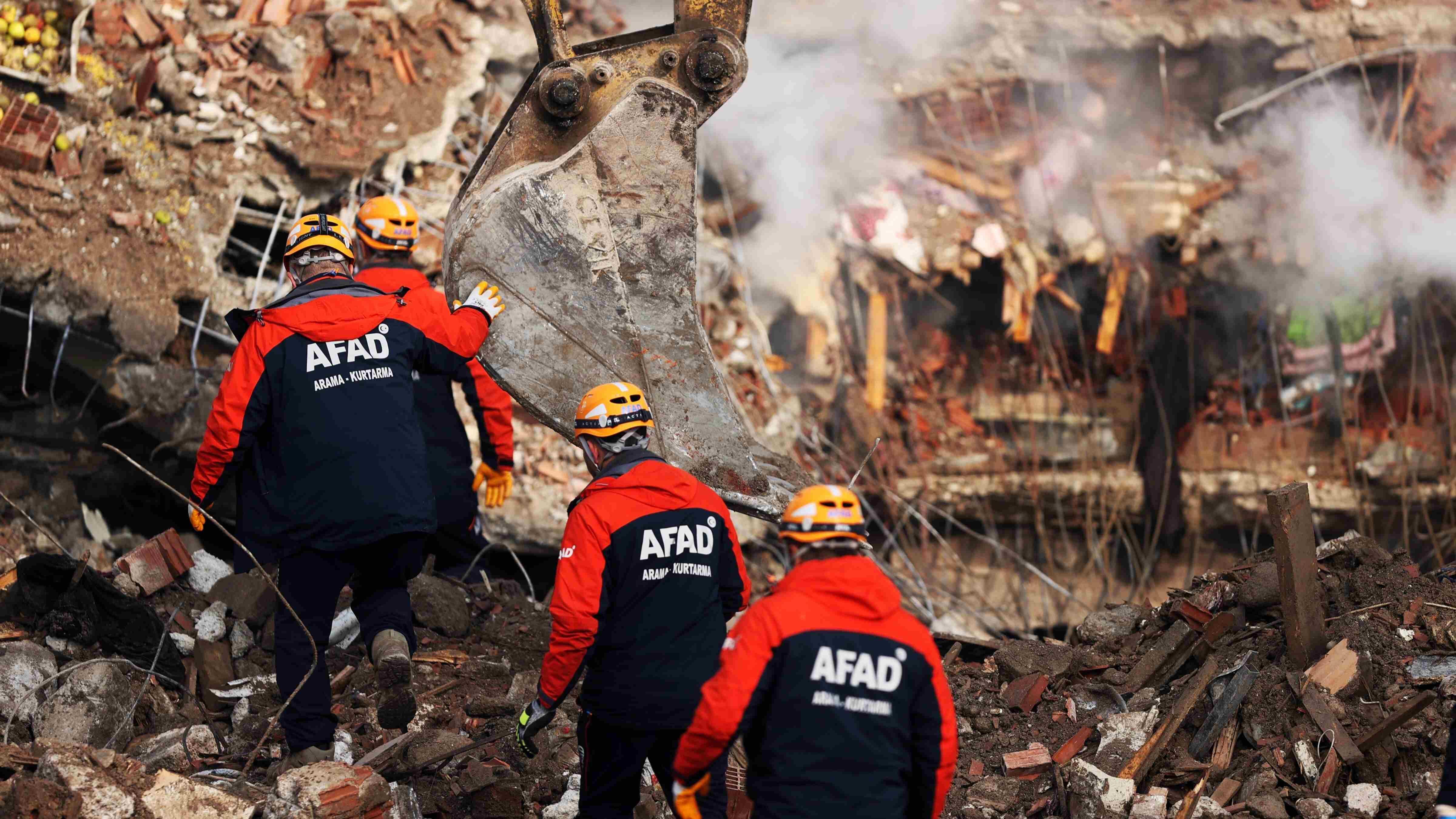Initial findings suggest column removal led to Konya building collapse
KONYA

The recent collapse of a four-story building in the Central Anatolian province of Konya is believed to have been caused by the removal of load-bearing columns in a ground-floor seafood restaurant, according to initial investigations.
The incident occurred in the Selçuklu district on Jan. 23 evening, when the building came crashing down with a thunderous noise. Five individuals were trapped under the rubble.
While rescue teams managed to save three survivors after hours of effort, two people were found dead.
Authorities launched an immediate investigation into the incident. Early findings suggest the building’s structural integrity had been compromised due to unauthorized modifications.
Four individuals, including the business owner and property owners, have been detained as part of the ongoing inquiry.
Meanwhile, the collapse has reignited discussions about Türkiye’s persistent structural safety problems.
In similar past incidents, dozens of lives have been lost, bringing into focus the urgent need for stricter enforcement of construction regulations.
Sinem Kolgu, the head of the Istanbul branch of an engineers and architects chambers union, underscored the risks of such interventions.
“Modifications like cutting load-bearing columns alter the building’s load distribution, rendering the structure unstable and unsafe,” she said.
“Unauthorized changes pose serious risks and should be met with stricter penalties and systematic inspections.”
Legal expert Rezan Epözdemir highlighted the legal ramifications of such actions.
“If fatalities occur due to the removal of columns, this constitutes ‘reckless manslaughter’ under the Turkish Penal Code, carrying a penalty of three to nine years in prison. However, if premediation or foreseeable consequences are established, charges escalate to ‘intentional killing,’ punishable by up to 25 year per death.”
















